Movie Review – Champagne (1928)
Frothy comedy entry for Hitchcock is just a delight of a thing, a frivolous, undemanding affair that – if one was a cynic – might be considered too lite-weight for the master’s oeuvre. Personally, I found this film a real blast, if not for the characters (who are fairly pedestrian, and only really elevated by the cast’s performances) then for Hitch’s visual flair. Most definitely one of the more amusing silent films I’ve seen.
– Summary –
Director : Alfred Hitchcock
Year Of Release : 1928
Principal Cast : Betty Balfour, Gordon Harker, Jean Bradin, Ferdinand Von Alten, Fanny Wright. Uncredited Cast: Alexander D’Arcy, Vivian Gibson, Clifford Heatherley, Claude Hulbert.
Approx Running Time : 85 Minutes
Synopsis: A young woman is forced to get a job after her father tells her he’s lost all their money.
What we think : Frothy comedy entry for Hitchcock is just a delight of a thing, a frivolous, undemanding affair that – if one was a cynic – might be considered too lite-weight for the master’s oeuvre. Personally, I found this film a real blast, if not for the characters (who are fairly pedestrian, and only really elevated by the cast’s performances) then for Hitch’s visual flair. Most definitely one of the more amusing silent films I’ve seen.
**********************
Pop the cork, folks.
Alfred Hitchcock’s seventh feature as director, co-writing the screenplay based on a story by Walter Mycroft, is ostensibly a comedy – the first of Hitch’s career – marking a departure from the thrillers he’d carved a niche with during the early 20’s. At the time, critics were divided about Champagne’s merits; technical prowess and visual style couldn’t trump an apparent lack of quality story, although exactly what kind of story you’d find in a comedy other than “light and frothy” eludes me. Hitchcock himself was later quoted as saying Champagne was ” [a] film [with] no story to tell”, so even in the eyes of the master it didn’t stack up to some of his later work. The film’s foundation couldn’t have been more solid, with the cast including popular silent film actress Betty Balfour, noted British actor Gordon Harker, and French thespian Jean Bardin, as Betty’s love interest; so what about Champagne could make Hitchcock so dismissive of one of his early directorial efforts?

Plot synopsis courtesy Wikipedia: Heiress Betty (Betty Balfour) draws the ire of her father after using his aeroplane to fly to her boyfriend (Jean Braden) on an ocean liner headed to France. She has dinner alone when her boyfriend becomes seasick and is joined at her table by a mysterious man (Ferdinand Von Alten). Betty receives a telegram from her father who disapprovingly warns her the boyfriend is a golddigger. To prove her father wrong she asks the boyfriend to marry her. A quarrel ensues and the two part company when the ship docks. The boyfriend regrets the fight and goes to Betty to apologise. He finds her entertaining guests, including the mysterious man. Another quarrel between the two is interrupted by the arrival of Betty’s father (Gordon Harker). He tells Betty the family fortune, earned in the “champagne” business, has been wiped out in the stock market. The boyfriend leaves after hearing the news of their fortune. The father sees this as proof the boyfriend is only after money. Betty decides to sell her jewellery but is robbed en route to the jewelers. Now penniless, Betty and her father move into a small shabby apartment. Unbeknownst to Betty her father sneaks out to eat at an expensive restaurant after her cooking proves to be terrible. Once again her boyfriend tries for a reconciliation but is rebuked by Betty, who now thinks her father is right about the boyfriend, vows to get a job. Romantic hijinks ensue!
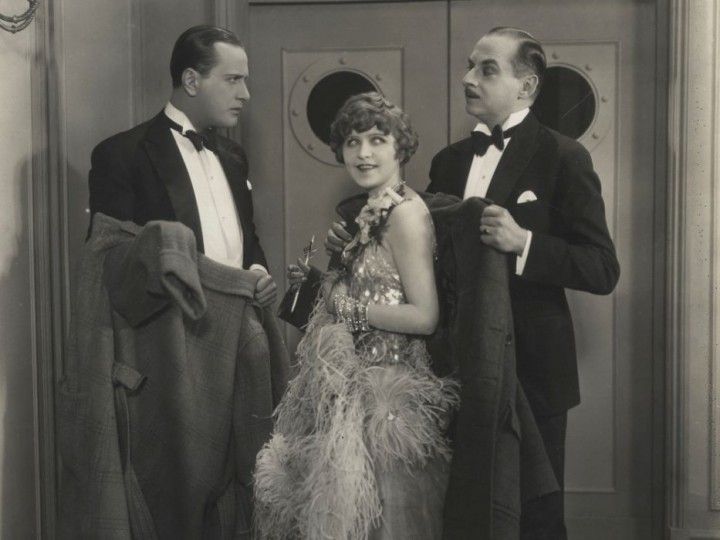
Okay, so the story Champagne tells isn’t much chop, but man it’s still a fun film to watch. Filled with delightful whimsy and a sense of playfulness about it all, Hitchcock’s comedic timing, impeccable framing and the ability of the cast to deliver laughs without a moment of audible dialog renders much of modern day Hollywood’s attempts at similar stuff rather impotent. Champagne isn’t highbrow material, but it is charmingly middle-class, a “romp” of late 20’s style that, considering the era, is really rather delightful. The faux romantic affectations of the cast probably drew more chuckles than the film deserved – more a product of its time than any deliberate attempts by Hitch to instigate laughs – and the use of momentary “breaking the fourth wall” comedy only add to the relaxed nature the film endears with.
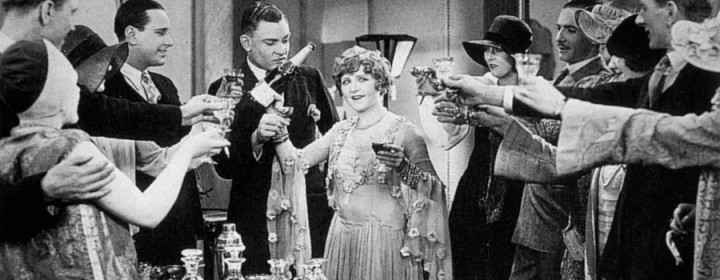
Obviously the film hangs on lead star Betty Balfour, who was (from what Mr Google tells me) was at the peak of her popularity at the time Champagne came out, before it waned with the arrival of sound movies. Balfour is an utter treasure to watch, a pixie-type actress who devours the comedy moments with class and, at times farcical ebullience. She draws a chuckle from almost the opening frame: her introduction in the film sees her clambering from the pilots seat of a water-plane, fluffing her face to look beautiful, before removing her goggles and headgear to display the grit and oily residue of a long trans-Atlantic flight to the luxury liner which opens the film. From there, the rest of the cast all work gamely to match her natural energy and screen charm – frankly, she’s my favorite (so far) of all Hitchcock’s leading women, I really did warm to her natural comedic ability.
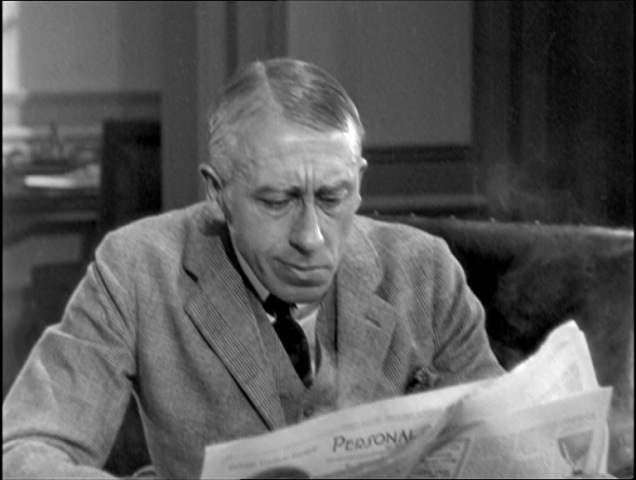
Gordon Harker, as Betty’s father, and Jean Bradin, as the “tall, dark and handsome” leading man (aren’t they all, though?) can’t quite match Betty for sheer presence within the film, although not for lack of trying. Bardin himself resonates pure “debonair charm”, while Harker’s austere, almost henchman-like portrayal seems almost at odds with the overall tone of the film Hitchcock gives us. Ferdinand von Alten (credited on-screen as Theo von Alten) is sly as “the Man”, although his presence in the film is a red herring, and amounts to nothing. By far the best laughs are saved for a hotel maitre d, played by Marcel Vilbert. His thunderous visage and gregarious facial expressions midway through the film just made me laugh outright, and save some of the middle of the film from stretching into mediocrity.
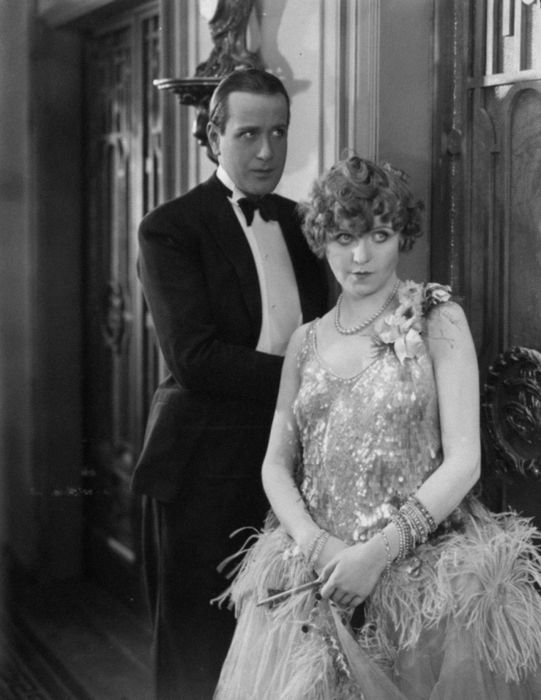
Perhaps Champagne’s saving grace is, in light of a fairly fluffy story, Hitchcock’s mastery of the visual form. Once again, he pulls out almost all the cinematic tricks of the time – fades, pans, zooms and focus racks, just to name a few. The camera delights in Balfour’s obvious beauty, and Hitch uses this to full advantage, although when the story does delve into momentary darker parts (Betty’s father informs her they’ve lost all their money in the stock market crash, which is somewhat eerie considering Wall Street would plunge America into the Great Depression only a year after Champagne was released, and all of Betty’s loved possessions “at home” flash through her mind) Hitch really nails the moments. His use of angles and framing is almost at a similar level as The Lodger’s prodigious effortlessness, although here used more vociferously to display elements of comedy and story. He wobbles the camera to simulate the luxury liner’s battle with the ocean waves, and to great effect (the film was shot on a London sound-stage, as far as I’m able to determine), while the latter stages of the film, set in Paris, find Hitch using his set designer, lighting designer, and camera operator, to their maximum potential.
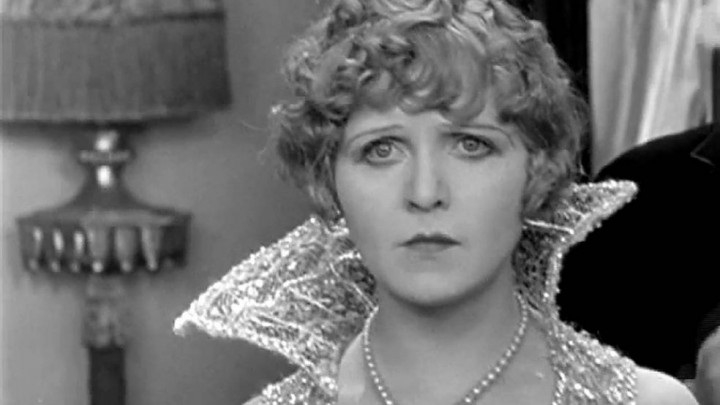
Whereas I normally have problems with silent films, as I find them often hard to follow without dialogue, Champagne is a refreshingly different beast. While watching, the minimal interstitials neither enhanced or detracted from the film itself, and I was able to understand a lot of based on the performances. Honestly, not even The Lodger accomplished that. Champagne doesn’t require a sweaty attention span, it simply requires an understanding of body language and human interaction. Cursory knowledge of the characters is informed by a glance, a look, and occasionally a reaction from others, and the story’s simplistic nature actually made it easier than normal to figure out what, who and when was going on. Anyone who has little experience with silent films would be hard pressed to find a film of the genre which was as easily accessible as Champagne. Please note: there was a restoration print of Champagne released in 2012, with a new score composed by Mira Calix. The print I saw contained a generic (and often inappropriate) classical music score (including several British composers, including Edward Elgar), therefore I cannot comment on this element of the film.
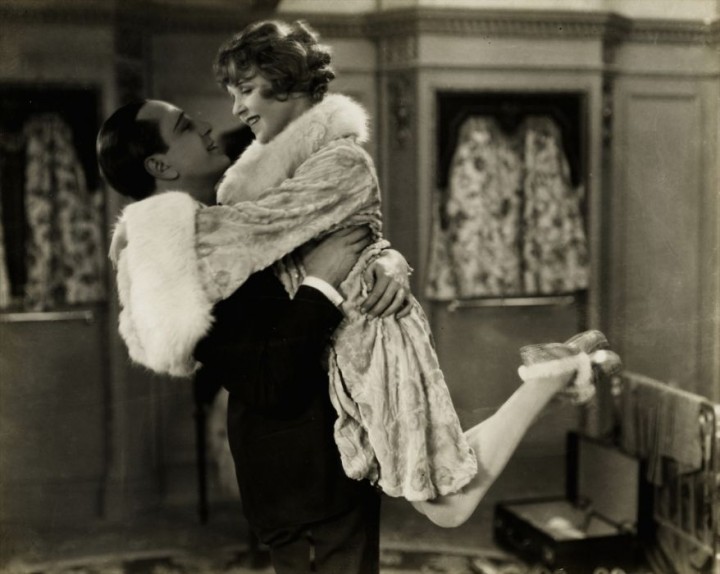
Champagne is an easily palatable, charming, witty comedic entry from Hitchcock. No, it’s not the most hilarious thing you’ll ever see, nor is it even the most intelligent – in actuality, I kinda guessed what was gonna happen several times before it did, which is rare for me – but for a lite-weight, pleasantly diverting nonsense, Champagne is just lovely. And again, for Hitchcock fans, it’ll be well worth checking out. It’s fluff and nonsense, and an utter delight. I hate to dispute Hitch’s own critique of the movie, but I really enjoyed it.


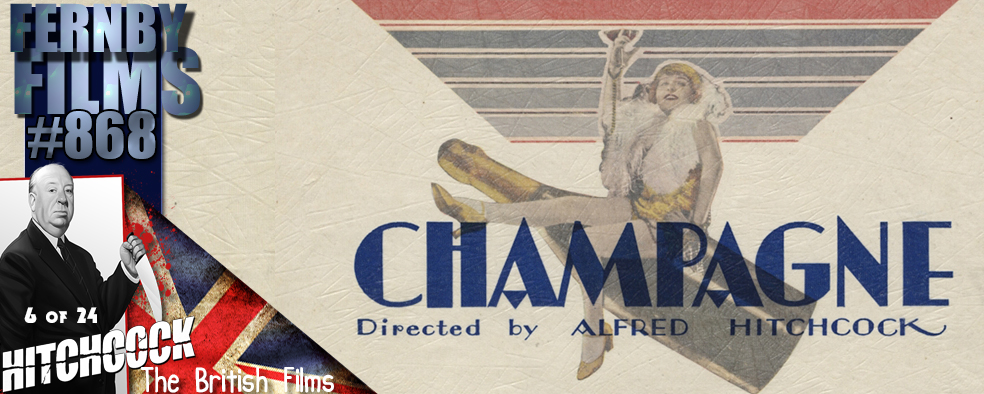
 Hitchmania: Champagne (1928)
Hitchmania: Champagne (1928)
 Wexner Center to screen restored early works of Hitchcock
Wexner Center to screen restored early works of Hitchcock



